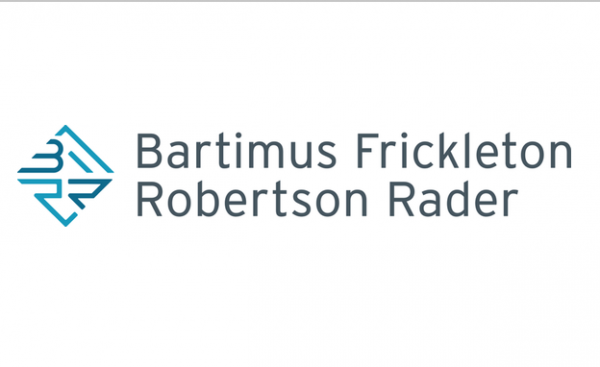
Congratulations to Tony DeWitt and everyone who worked so hard on this case. Well deserved win.
Read the full article from Missouri Lawyers below or click here.
Judgment against insurer balloons after lengthy fight
A St. Louis County judge awarded $1.44 million to a local attorney in a lengthy fight with his homeowner’s insurance provider.
Circuit Judge Stanley Wallach’s Aug. 18 ruling said American Family Mutual Insurance Company was responsible for about $422,000 in damages plus interest — and that, because the insurer had vexatiously refused to pay the judgment following an unfavorable trip to the Court of Appeals, it also was responsible for nearly $94,000 in statutory penalties and $412,000 in attorneys’ fees.
Tony DeWitt of Bartimus Frickleton Robertson Rader represented plaintiffs Robert and Stacia Cockerham. Robert Cockerham is an attorney with The Cockerham Law Firm whose expertise in insurance law was critical to the case, DeWitt said.
DeWitt said he believes it is the first case in Missouri to focus on post-appellate-opinion vexatious conduct by an insurer. Although the case has gone to the Eastern District once before and also was the subject of an unsuccessful writ, DeWitt said he expects further appeal.
“I think that American Family will only pay this when the Missouri Supreme Court says they have to,” DeWitt said.
Jon Sanner of Brinker & Doyen in St. Louis, an attorney for American Family, didn’t respond to a message seeking comment. Susan Ford Robertson of The Robertson Law Group in Kansas City, who argued portions of the post-appeal case, also didn’t return a call.
The Cockerhams had added an observatory equipped with a telescope to their Creve Coeur home. They alleged that a subcontractor poured the concrete incorrectly, leading to damage to the foundation and the telescope’s support system. American Family declined to cover the damages, which led to the Cockerhams’ suit in 2015 alleging breach of contract and vexatious refusal to pay.
A St. Louis County judge granted summary judgment to the insurer, based on the contract’s exclusion for faulty or defective construction. But in 2018, the Eastern District, which described the contract as “a rather prolix word puzzle,” found that language elsewhere in the contract provided coverage despite that exclusion. The appeals court ordered “entry of judgment in favor of Homeowners” on the coverage issue.
Upon return to the trial court, the insurer argued that the appeals court’s opinion called only for a judgment declaring that coverage existed, and that damages should be determined at a jury trial. Following two rounds of arguments, Wallach disagreed and entered a judgment in June 2019.
“After much consideration, the Court concluded that the Court of Appeals knows the difference between remanding for entry of judgment, and remanding for a trial on damages,” he wrote.
Wallach cited an expert’s estimate that the cost of fixing the Cockerhams’ home was $422,356.82 as of October 2014, which had been alleged in the plaintiffs’ earlier motion for summary judgment. American Family had objected to the expert’s opinion but didn’t squarely deny the figure or provide evidence to contest it, so Wallach deemed the insurer to have admitted to the damages. The insurer filed a writ with the Eastern District to challenge that conclusion but was rebuffed.
Nonetheless, the insurer continued to refuse to pay. Wallach found that American Family no longer had a meritorious defense following the Court of Appeals’ mandate, and there was no reason for it not to have paid the Cockerhams last year, when the judgment with interest was just $845,000.
The judge noted that he was awarding damages for a vexatious delay claim “solely as it pertains to post-opinion conduct, and this Court is making no conclusions as to the propriety of American Family’s refusal to pay prior to the Court of Appeals opinion on coverage.”
Vexatious refusal to pay is a statutory cause of action outlined in Section 375.420 of the Revised Statutes of Missouri, which imposes a penalty of 20 percent on the first $1,500 dollars of the loss and 10 percent on the remainder. It also allows for attorneys’ fees, so Wallach awarded DeWitt his 40 percent contingency fee.


